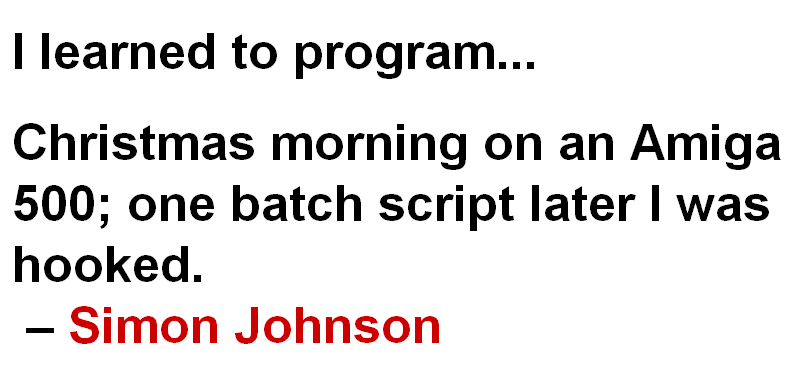| How we learned to program |
| Written by Sue Gee | |||
| Wednesday, 27 April 2011 | |||
|
A web site where people can exchange their reasons for learning to program was launched last week and now has almost 400 one-sentence stories. ilearnedtoprogram.com is a refreshingly simple idea. Its goal, according to its creator Ben Chun is: to offer some insight for non-programmers (and especially pre-programmers!) into the wide range of people who know how to do this thing. We all got our start and learned our skills from a wide range of sources, for a wide range of reasons. He explains that he created the site "one Saturday afternoon" as an excuse to learn MongoDB. Visitors are invited to complete the sentence "I learned to program ..." and can fill in a form to submit a response.
When you visit the site you are shown a random entry that is already posted. The submissions are moderated so you can't expect to see your own instantly. Clicking the link to a poster's name lets you find out more about them (not, however, in the case of children under 13) and clicking one of the lower links goes to free resources for learning to program. I've posted my story so I'll be going back to see if it gets posted and because it's fun to see what made us all start on this road. It is a great excuse to remember back to the time when we first started to understand the difficulties of changing mindset from non-programmer to programmer. It might even encourage others to do the same... More Information
If you would like to be informed about new articles on I Programmer you can either follow us on Twitter or Facebook or you can subscribe to our weekly newsletter.
|
|||
| Last Updated ( Wednesday, 27 April 2011 ) |


